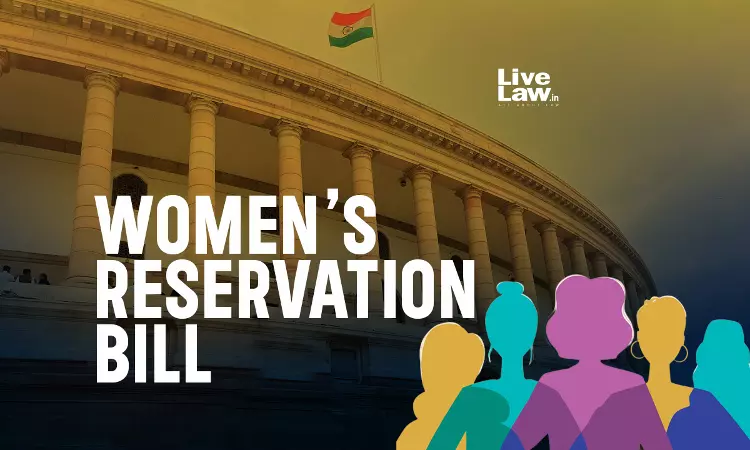
Image Source: livelaw.in
The recent passage of significant bills in the Lok Sabha pertaining to women's representation in the states of Jammu & Kashmir (J&K) and Puducherry marks a pivotal moment in the realm of gender inclusivity in Indian politics.
The Lok Sabha, the lower house of the Indian Parliament, witnessed a robust discussion and subsequent unanimous approval of these bills, aiming to bolster women's participation in the decision-making process at the state level.
Key Provisions of the Bills
The bills seek to ensure a more equitable representation of women in the legislative assemblies of J&K and Puducherry through reserved seats. Key highlights of the bills include:
- Allocation of a specific number of seats for women in the state legislative assemblies.
- Guaranteed representation for women in constituencies where they have been historically underrepresented.
- Empowerment of women to engage actively in the political landscape of these regions.
Importance from UPSC Perspective
From the standpoint of the Union Public Service Commission (UPSC) examinations, these developments carry immense significance:
The inclusion of such legislative changes broadens the spectrum of topics within the political landscape for aspiring civil servants. It underscores the evolving nature of governance, reflecting a more inclusive and diverse approach to decision-making.
UPSC aspirants are encouraged to stay abreast of such developments as they provide an understanding of the dynamic socio-political fabric of the nation, thereby aiding in comprehensive preparation for the examination.
Impact on Society
Empowering women in politics is not merely a legislative stride; it signifies a profound societal shift towards gender equality and inclusivity. Increased representation fosters the articulation of diverse perspectives, ensuring a more holistic approach to governance.
Moreover, such measures set a precedent for other regions and states across India, advocating for greater participation of women in positions of decision-making and leadership.
Conclusion
The passage of women's representation bills for Jammu & Kashmir and Puducherry reflects a commendable step towards realizing gender parity in Indian politics. These legislative advancements not only amplify the voices of women but also exemplify the nation's commitment to fostering an inclusive and diverse governance structure.
Aspiring civil servants should acknowledge and comprehend the implications of such developments, recognizing their significance in the broader socio-political framework of the country.